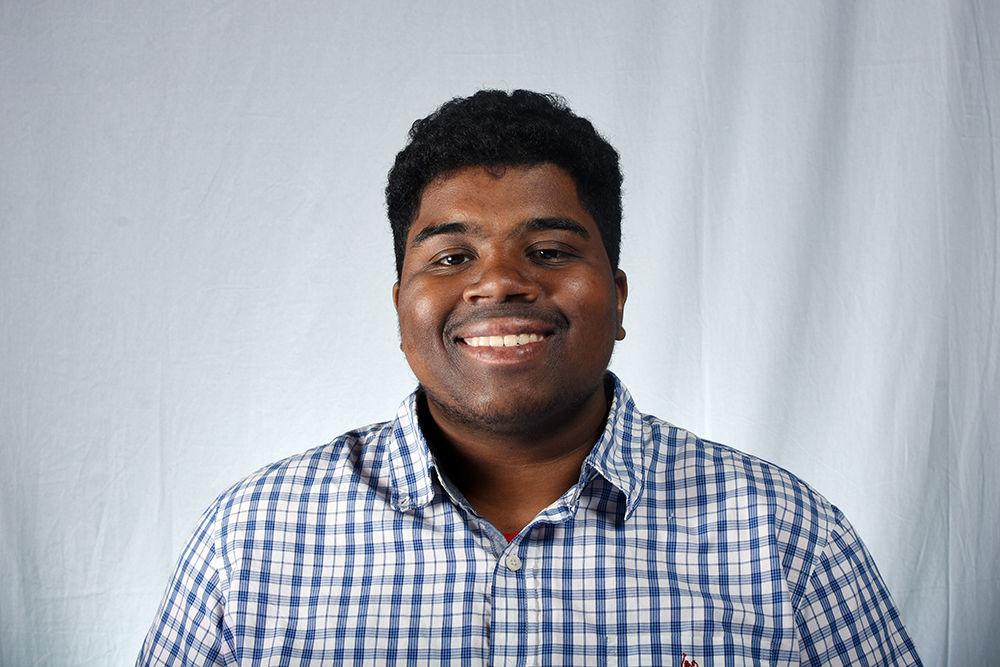
Shawn Fredericks
Free speech on college campuses is a hotly debated topic that gets many people riled — more particularly right-leaning people. Universities, specifically public universities like NC State, are becoming the battleground for the debate, with hard lines being drawn in the sand between partisans.
The problem with this framework, like many partisan issues, is that nuance and contextualization are lost in the debate with only extreme absolutes left as options. A great “Star Wars” quote that I deem to be very fitting in the discussion of principles, especially political ones, is very simple and very enlightening: “Only Sith deal in absolutes.” Granted, the right-leaning side of this partisan issue tends to be more overzealous for my taste in their attempts to “protect” free speech with the promotion of tolerance and, in my view, normalization of hateful speech.
The thing is that both extremes are misunderstanding each other. The right tends to think that “protecting” free speech is the same as accepting hateful ideas. More libertarian views take any criticisms of free speech as the promotion of censorship and hold that there are no distinctions that should be considered in free speech. However, there is a lot of nuance that is lost when these are the only positions that can be taken with no alternatives being deemed acceptable.
My view is this: free speech needs to be a central principle that has to be upheld, but it cannot remain this vague subjective principle that continues to only serve the free speech of the socioeconomically privileged. There is a distinction between equality of speech and the license to say whatever you want.
The Greeks had two conceptions of freedom of speech, called “isegoria” and “parrhesia” — equality of speech and the freedom to say whatever you want. The equality of speech in democratic debate allowed every citizen the right to participate in public debate. The freedom to say whatever you want essentially gave citizens a license to say whatever they wanted, whenever they wanted, to whomever they wanted.
These are two important distinctions to make and to seriously consider when debating free speech. There is a balance that has to be achieved with the principle of free speech that has not been met. Proponents of free speech often are not cognizant that freedom of speech has always protected the privileged. Rights are abstractions that have no power by themselves, they have an intrinsic social and economic relationship, meaning they must be backed by institutional support.
America on a macro level has not institutionally supported the free speech of all groups, and this cannot be blamed on simple human nature, leading to oversight, but the result of the marginalization of groups by America.
Equality of speech must always be upheld; however, the license to say whatever you want — that “freedom” — must be scrutinized and in more extreme cases criminalized. Fake news, misinformation and tolerance for hate have disastrous consequences.
Daniel Altman highlights these consequences in his article “This Is How Every Genocide Begins” in Foreign Policy magazine. “The pamphlets, megaphones, and radio broadcasts came before the pogroms, murders, and forced relocations,” Altman said.
This is not me trying to scare people into censorship. What I am highlighting is that freedom to say whatever has dire consequences that cannot be ignored. This is especially true for college campuses, where the next generation of leadership is being groomed, making it very alarming when alt-right groups are using campuses as recruitment grounds and trying to bring their views from an online space to a physical one.
What free speech advocates on this issue must understand is that no one wants to take away the freedom to exchange ideas, even conflicting ones. But considerations have to be made on institutional levels. Government institutions like NC State, which are run like million-dollar corporations in the business of selling education, need to institutionally support marginalized voices that have been excluded from the tools the privileged have always had, like priority given to their voice on campus issues.
Marginalized groups should be able to work hard, pay tuition, succeed in their classes and receive the same institutional level of support as the majority. To say there has been no disparity both socially and culturally is asinine.
In the wake of Martin Luther King Jr. Day, I think it is important to highlight how America has historically failed to criminalize hateful ideas on an institutional level, lest we forget as a nation that America let the South rebel against the Union scot-free and abandon black southerners back in the 1800s. Also, we cannot forget the internment camps of the 1940s that caged and violated the civil rights of Japanese Americans.
We must not forget the attempt at cultural genocide of Native American culture through Indian boarding schools. And, the current Trump administration’s anti-immigration policies and rhetoric toward Hispanics and Haitians have all contributed to an America that does not value marginalized communities and their voices as equal citizens.
I want to leave the reader with a quote by Teresa M. Bejan, who inspired this piece with her analysis of the two concepts of free speech in her article “Two concepts of Freedom of Speech” in The Atlantic.
“Most of these students do not see themselves as standing against free speech at all. What they care about is the equal right to speech, and equal access to a public forum in which the historically marginalized and excluded can be heard and count equally with the privileged. … When the rights of all become the privilege of a few, neither liberty nor equality can last.”